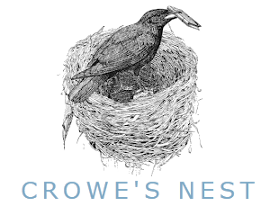So I have a theory that goes like this:
A Brain can't focus on just one thing unless it knows well where it's going.
Which I realize totally goes against the "One track mind" theory, but hear me out.
Have you ever sat down to write, but hadn't worked through your next scene (or where your plot is going) or what your next blog post is going to be about, and you get a little distracted? You sit and stare at the screen and think,
Uhhhh.... I think I'm going to make my MC's bff find a note she had actually written to.... um.... Oh! I need to go into my online banking to see if that check cleared! Okay, back to writing. Hm.... So when she finds the note, she's going to THINK that it was really to her and.... Oh, my gosh! I was supposed to check to see if SIL posted those pictures on facebook! I almost forgot!
It's because your brain can't just do one thing, unless it knows VERY WELL what it's doing. If you aren't sure where you're going with a scene, your brain is working that out but at the same time it's working on other
non-what-you're-trying-to-work-on things.
So how do you solve this problem? It's really simple, actually. You give your brain a task to work on that it DOES know very well. One it could do with its eyes closed. The dishes. Making dinner. Mowing the lawn. Folding clothes. Vacuuming.
Once its tied up doing those jobs, the rest of your brain is free to focus on what you're trying to work out. It stops going all ADD on you.
For me, my favorite way is what I like to call a Walk-n-Plot. I head to a canal near my house that has a dirt pathway to the side of it. Really similar to this picture, actually.
The canal road is perfect because there aren't many people on it. Not many people to see that I talk to myself A LOT when I Walk-n-Plot. This is also where the cell phone voice recorder comes in handy. As I come up with one plot puzzle piece, I can record what I figured out instead of trying to hold it in memory while I work on the next puzzle pieces. Plus, whenever a runner comes by, they can just assume that I'm talking on the phone, instead of to myself.
So, once you've Walked-n-Plotted, cleaned house, showered, or whatever else got your brain working on something else so you could figure things out, then your brain is in that category of knowing exactly where it's going. And once you know where you're going, your brain can focus on it
entirely.
(Pantsers, I know you may be thinking my theory is bunk at this juncture, but I've pantsed my way through a few things, and I think the theory still holds. When you sit down to write, don't you find yourself getting easily distracted until you get that spark of where to go? Once you get it, the ideas start flowing, and your brain suddenly KNOWS WHERE IT'S GOING. Then the distractions stop.)
What do you do to keep your brain busy enough to let it focus on figuring things out?












































